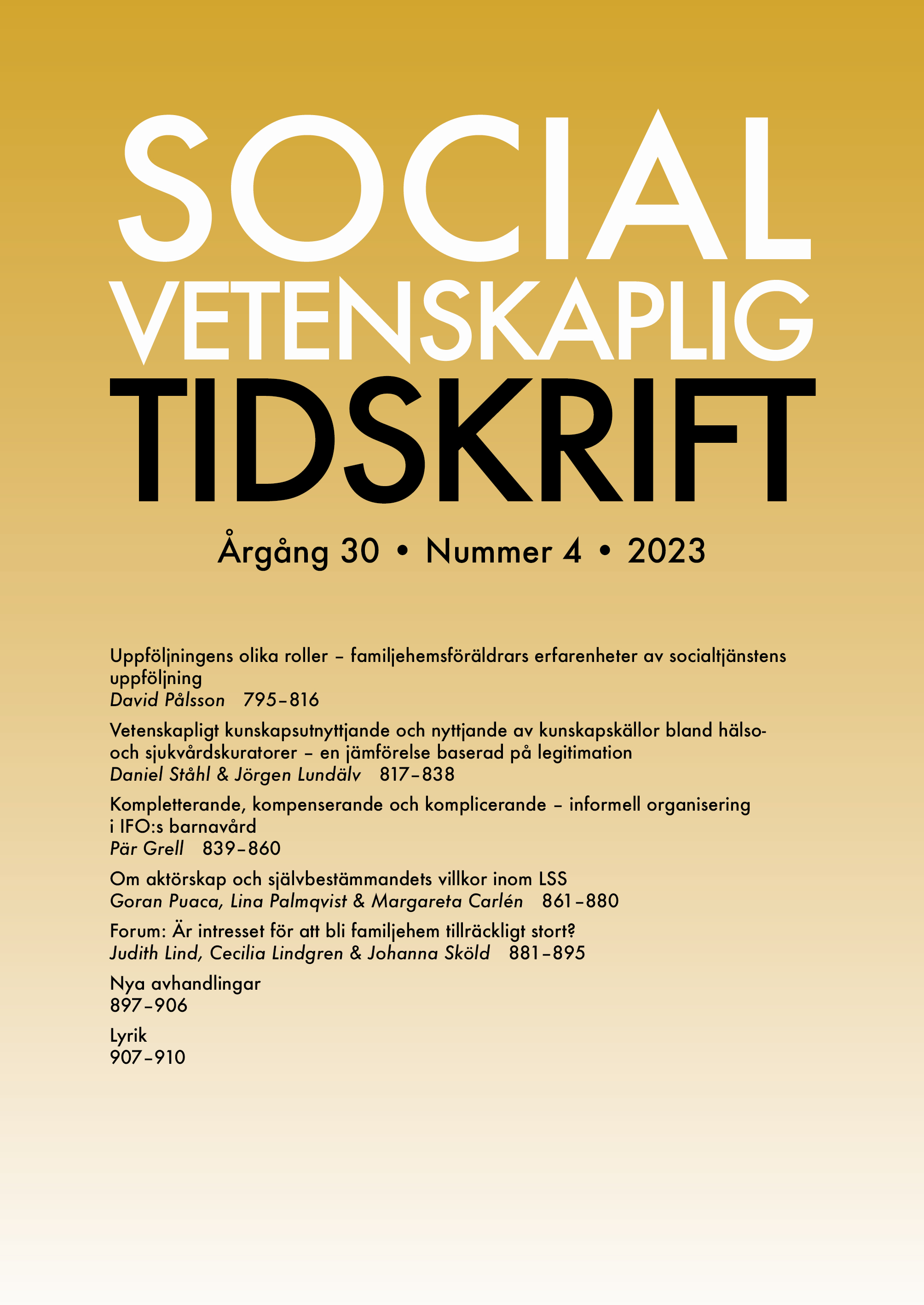Vetenskapligt kunskapsutnyttjande och nyttjande av kunskapskällor bland hälso- och sjukvårdskuratorer
– en jämförelse baserad på legitimation
DOI:
https://doi.org/10.3384/SVT.2023.30.4.4804Nyckelord:
research knowledge utilisation, research knowledge, knowledge source, health social worker, license, social workAbstract
Research knowledge utilisation and the use of knowledge sources among health social workers - a comparison based on licence
Previous research has shown that health social workers make little use of research knowledge in their professional practice. The purpose of the study was to investigate possible differences between licensed and non-licensed health social workers based on background factors, research knowledge utilisation and use of knowledge sources. The study was based on a national web survey that was answered by a total of 1236 health social workers. The survey responses were analysed using cross-tabulations, Chi2 tests and binary logistic regression. The results showed that there were differences in a number of background factors: sex, number of years in the profession, highest completed education and whether the respondents had studied all/part of their education abroad. All these background factors, with the exception of gender, were found in the regression analysis to be associated with licence status. The results show that there was a difference in the frequency of reading research literature between licensed and non-licensed respondents. The respondents' answers regarding the most important sources of knowledge in their work differed with respect to four variables: theory, life experience, colleagues and supervision. In comparison, their answers regarding the barriers that affect them most differed with respect to only one variable: lack of organisational support for applying scientific knowledge in practice. The study’s main results show that there are no major differences in terms of research knowledge utilisation between licensed and non-licensed health social workers. Rather, the results indicate that there are more similarities between the groups. In terms of use of knowledge sources, however, both differences and similarities between the groups were demonstrated. The article proposes an important question for further research and highlights implications for practice.
Downloads
Publicerad
Referera så här
Nummer
Sektion
Licens
Copyright (c) 2024 Daniel Ståhl, Jörgen Lundälv

Det här verket är licensierat under en Creative Commons Erkännande 4.0 Internationell-licens.
Allt material i Socialvetenskaplig tidskrift publiceras sedan 2022 (Vol 28 Nr 2) med omedelbar öppen tillgång (open access), under Creative Commons-licensen CC BY 4.0. Upphovsrätten till innehållet tillhör respektive författare.
Allt innehåll i tidskriften är fritt tillgängligt utan kostnad och får fritt läsas, laddas ned, kopieras, delas, skrivas ut och länkas. När innehållet används måste författare, källa och licens anges. Författaren kan fritt göra sin publicerade text tillgänglig på institutionella och internetbaserade arkiv, exempelvis sitt lärosätes digitala arkiv eller andra tjänster för detta.
Inga publiceringsavgifter tas ut vid publicering i Socialvetenskaplig tidskrift.


